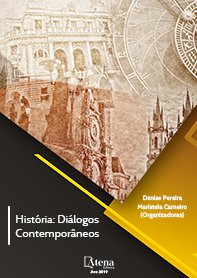
FÉ EVANGÉLICA E A AÇÃO POLÍTICA NA OBRA CINEMATOGRÁFICA SELMA (2014): uma visão protestante acerca da luta pelos direitos civis.
Martin Luther King Jr. foi um pastor
norte americano, que lutou pelos direitos civis
dos negros e pastoreava uma Igreja Batista, em
Montgomery, no estado do Alabama - Estados
Unidos da América. Sua atuação na luta pela
garantia dos direitos dos negros foram tão
expressivas que lhe resultou no Prêmio Nobel
da Paz, concedido em 1964, pois em suas
manifestações sempre exaltava o pacifismo.
O filme a ser analisado, Selma: Uma luta pela
liberdade (2014) foi dirigido por Ava DuVernay,
a primeira diretora negra a ser indicada para o
premio Globo de Ouro. Esta obra demonstra
uma parte da vida deste ícone da resistência,
ocorrida na cidade de Selma, no estado do
Alabama. A questão é a luta pelo direito ao voto
da população negra, sendo de grande relevância
as cenas que mostram a estratégia pacífica do
grupo ativista negro. Nosso intento é articular
tal modo de resistência defendido por Luther
King com os princípios cristãos protestantes, ou
seja, como o filme relaciona uma fé evangélica
a ação política.
FÉ EVANGÉLICA E A AÇÃO POLÍTICA NA OBRA CINEMATOGRÁFICA SELMA (2014): uma visão protestante acerca da luta pelos direitos civis.
-
DOI: 10.22533/at.ed.59419230813
-
Palavras-chave: Direitos civis negros, protestantismo, resistência pacífica, cinema.
-
Keywords: Black civil rights, Protestantism, peaceful resistance, cinema.
-
Abstract:
Martin Luther King Jr. was a
North American pastor who fought for the civil
rights of blacks and pastored a Baptist Church
in Montgomery, Alabama - United States of
America. His performance in the fight for the
rights of blacks was so expressive that he was
awarded the Nobel Peace Prize, granted in
1964, because in his demonstrations he always
exalted pacifism. The film to be analyzed,
Selma: A Fight for Freedom (2014) was directed
by Ava DuVernay, the first black director to be
nominated for the Golden Globe Award. This
work demonstrates a part of the life of this
icon of resistance, which occurred in the city of
Selma, Alabama. The issue is the fight for the
right to vote of the black population, and of great
relevance are the scenes that show the peaceful
strategy of the black activist group. Our aim is to
articulate Luther King's resistance to Christian
Protestant principles, that is, how the film relates
an evangelical faith to political action.
-
Número de páginas: 15
- Vinícius Almeida Teixeira


